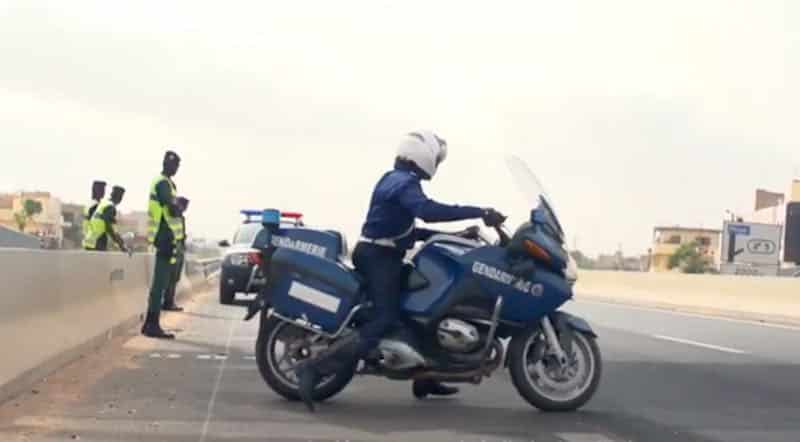Unruly Driving: A Disease That Must Be Cured

The National ‘Gendarmerie’ has for some time, started controls on speeding, especially on Senegalese highways including the Dakar-Thiès-Touba highway. I am preemptively apologizing as I was flagged a few days earlier in Bambey with several other motorists, driving well above the authorized limits. A group of gendarmes, positioned around the dedicated rest areas, was in charge of stopping the vehicles at fault, confronting the drivers with proof of the excesses, and inviting them to pay a monetary fine before taking back their driving licenses after a routine control. The gendarmes will not fail to point out to drivers just like me, the risks that were incurred and the consequences of our bad conduct behind the wheel. This presence, as much a deterrent as it is benevolent, has the merit of serving as a guardrail for any driver who thinks he’s on an Autobahn of Baol. At least I learned my lesson.
The damage caused by Senegalese drivers is enormous. The Ministry of Infrastructure and Land Transport reported in December 2021 that road accidents cost the State of Senegal no less than 163 billion CFA francs annually, which represents nearly 2% of the Gross Domestic Product (GDP). The macabre human toll of Senegalese roads is also chilling, in addition to the financial hecatomb. In 2020, more than 800 deaths were counted on our roads, with a total of more than 3000 deaths in the period 2017-2020, according to the National Agency for Statistics and Demography (Ansd) and the Directorate of Road Transport (Dtr). With a constantly growing fleet of vehicles due to a combination of different measures (more than 860,000 vehicles are currently in circulation in our country), the number of accidents and damage on Senegalese roads has also insidiously increased. A particularity of road accidents in Senegal, according to road traffic experts, is that they result, for the most part, from human error. It is concerning to realize that the most recurring cause of road accidents is carelessness at the wheel or lax and capricious driving.
Irregular passings are commonplace on our roads. Hard shoulder lanes are the speeding lanes for vehicles on our highways in times of congestion and are used as passing lanes for motorists « in a hurry ». Any vehicle with even the smallest flashing light can go on the wildest errands to show its eagerness or the importance of its errands and missions. One even wonders how far along on the ramp of progress our country would already be if the haste of some service and government vehicles on our roads was transformed into efficiency in their missions and mandates. Intercity transport buses and trucks enjoy racing each other on our national roads. The « Allo Dakar » vehicles run endurance races between the highway tolls of Dakar, Thiès, Mbour and Touba, with passengers who are often complacent with the drivers’ mistakes. For many private drivers, telephones in the hands of the drivers have replaced the steering wheels. Ancient vehicles are on our roads and somehow pass the technical inspection without this causing any concern. No one is shy about refusing courtesy to vehicles of general interest that have priority. Motorcyclists can go out at any time, without helmets, with the most aggressive driving if they do not improvise themselves as lead vehicles of circumstances for any type of convoy (from funerals to politicians, without mentioning the sportsmen). This is to say that all these abuses behind the wheel are our daily lot and safety on our roads has become a public cause that should alarm us all.
If we cannot be disciplined, it is wise that a Leviathan, in its sovereign role, dictates the way to follow, limits our deviations and excesses, especially if it manages, through financial penalties, to generate enormous resources to be used for the service of the community. The staking of the National Gendarmerie at Bambey, to tackle speeding, is to be seen under this prism. Far from being militants of a surveillance society, controlling our roads from the fury of motorists and irresponsibility at the wheel is necessary in view of the magnitude of the evils arising from road accidents. If pockets are punished for all the faults committed at the wheel without any leniency, we will one day come to understand among good Senegalese, that there is no « road eagle » to take a line from Mad Max. No one is born with a steering wheel in his hands and a gas pedal glued to his foot.
By Serigne Saliou DIAGNE / saliou.diagne@lequotidien.sn

